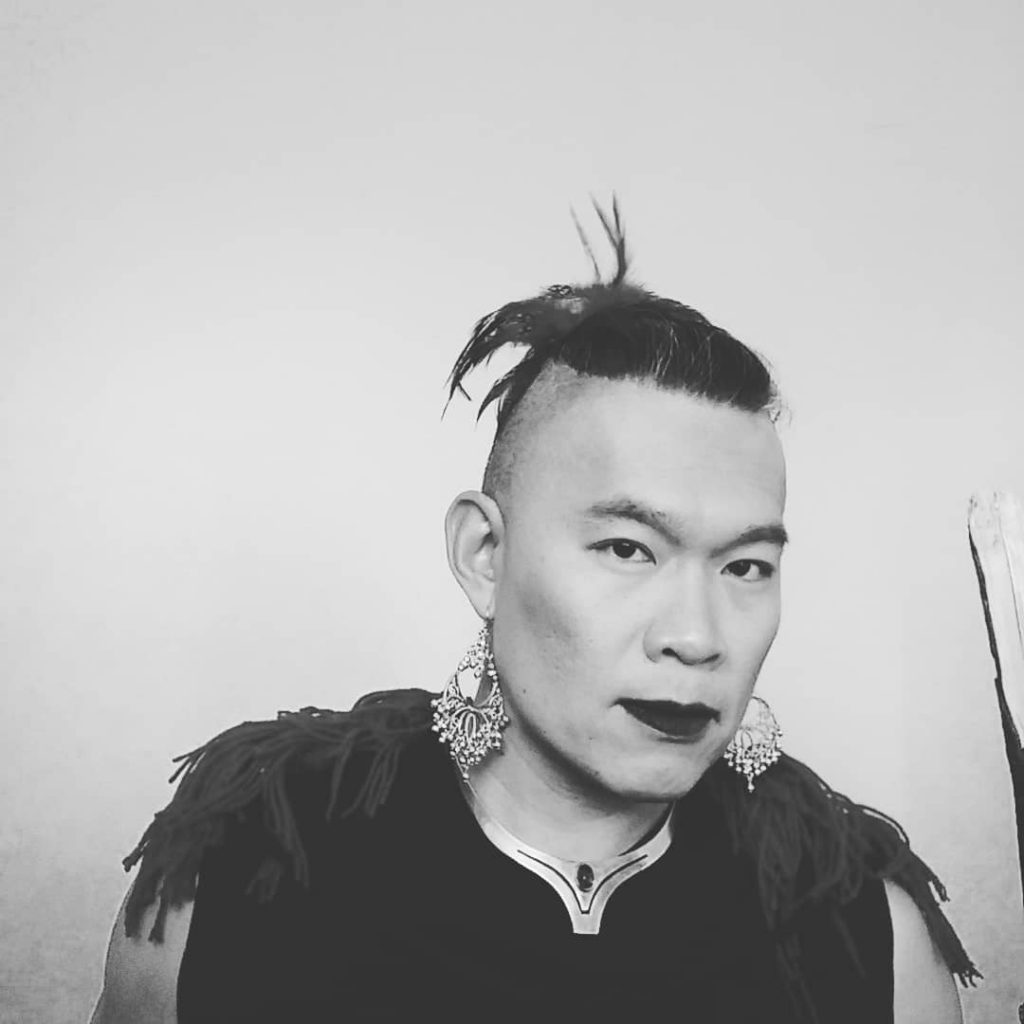Through a new multimedia project called “Cooking Post-Traumatic Savoury dishes, queer, disabled, mixed-race artist, Fran de la Luna explores the importance of comfort foods and the relationship to the different forms of trauma we carry. They also write about what comfort foods mean to them and how they are accessing comfort food to through living as a marginalized and racialized person.
Firstly, I want to acknowledge that the lands of which this project started on Klahoose, Tla’amin, Homalco Nations territories.
I currently live and work on the stolen Traditional Coast Salish Lands including the Squamish (Sḵwx̱wú7mesh Úxwumixw), Tsleil-Waututh (səl̓ilw̓ətaʔɬ) and Musqueam (xʷməθkʷəy̓əm) Nations.
I was taught that food is an essential way of life that speaks to relationships. First Nations and Indigenous Peoples have had their cultural roots taken away from them; cultural genocide being one of the ways that colonial governments still use to oppress them while pretending to give them a voice for their struggles.
In presenting this project, I am reminded of the privilege that many people have, including me, to have some food access and some security. At this moment, many First Nations and Indigenous Peoples are on the frontlines, trying to secure their culture, foods and lands from greedy governments.
What foods make us feel safe when we are triggered? What tastes do we run to? What food-related memories do we engage to make us feel okay? What do comfort foods do for our trauma and healing? How do some of us navigate the shame about the comfort foods that we love, and the comfort needed versus the struggle with addictions?
As a Complex-PTSD Survivor, I experience emotional flashbacks almost on a daily basis, at least once a day. I don’t remember when I started using comfort food-making to help me with emotional flashbacks since I disassociate often and have trouble with memory. I must have used this way of coping for a long time but it was only recently (May 2019) that I became aware of what is happening to me on a somatic and emotional level when I eat comfort foods, also what I think of as “safety food”.
The project is about tackling the many battling moments that come with choosing to eat or not to eat comfort foods, the intersections of personal needs and facing societal and cultural judgments, the letting go and new discoveries of comfort food as life changes, the missing and found cultural links to ancestral foods and how we connect with the healing of our ancestors through celebration of these comfort foods.
The project is about kindness or as my counsellor had put it, being friendly to ourselves. It’s about gentleness. It’s about navigating our healing as trauma survivors, disabled and queer folkx. It’s about our relationships with food and with each other. These are some of the contemplations I currently engage with in the context of justice, trauma, disability, race, class and gender.
These intersections with colonization, systemic oppression, food security and access add richness to this topic of comfort foods. In my first post, I shared about Peanut Butter sandwich, a food that was not part of my ancestral culture and yet became important to me, touching on class and poverty. Here’s an excerpt from the first blog post:
“Why peanut butter? is a seemingly simple but complex question for me. When I decided to write the first post about peanut butter, I was reminded that it was not part of my upbringing. I was birthed into a low social class family. Peanut butter sandwich is something only “rich kids” would bring to school, a not-so-significant highlight of going through an education system segregated not only by “intelligence” but mostly social class or more definitely economic class. Rich kids got to eat peanut butter in fancy plastic (harmful) containers during recess while the rest of us settled for canteen food, schmoozing the chef to give us more each time. For my family, peanut butter was a luxury.”
Even though this series started out as writing as a medium, it is my hope that with more support, I would be able to create more mediums of access for folks who are dyslexic and neuro-diverse like me.
You can find more Cooking Post-Traumatic Savoury Dishes posts at https://www.frandelaluna.com/cooking-post-traumatic-savoury-dish
About The Author
